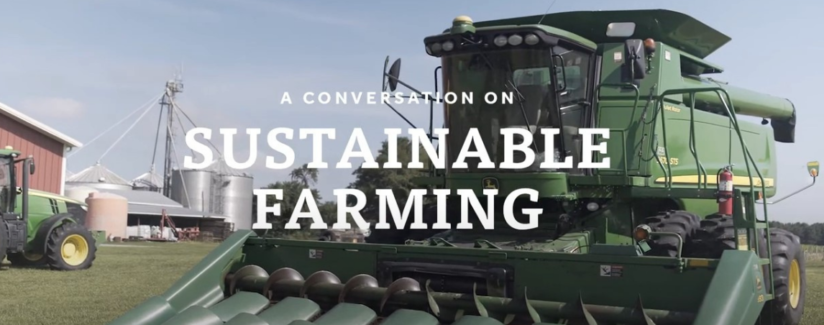
A Conversation About Sustainable Farming
Farmers are developing new and innovative technologies to improve the sustainability of crop farming, influencers learned during the 2020 Best Food Facts TASTE tour.
We hosted nine digital influencers for a virtual tour in July. The tour, originally planned to be in-person in central Iowa, was reformatted into three virtual discussions on these topics:
- Sustainable Crop Farming with a focus on crop practices and environmental stewardship
- Sustainable Food with conversations about food waste, processed foods, biotechnology and food affordability
- Sustainable Egg Farming, providing dialogue on hen housing and impacts on animal well-being, food affordability and natural resources
Brent Renner, an Iowa farmer, spoke to the influencers through a video call from his tractor to discuss the techniques that he uses to grow crops in the most sustainable way.
“Along with GPS, the monitor that steers my tractor is also capable of a lot of other things,” Renner said. “In regards to sustainability and trying to do more with less, which is another way to put it, is applying the perfect rate of whatever product you’re using, whether it’s chemical, fertilizer or insecticide, on the exact spot that it needs to be targeted.”
Dave Walton, who also farms in Iowa, said farmers have been funding research to find practical ways to make crop farming as sustainable as possible.
“We’re going to take that to a level that would boggle your mind,” he said. “Instead of using satellite imagery, which is kind of the standard now, we’re going to get to the point where you’re going to see little robots maybe the size of somebody’s little toy truck. There’s going to be a hundred of them running up and down the field taking pictures of plants in real-time and looking for leaf disease or insects or something that creates a stress on that plant. This technology is going to get down to the plant level, so we can treat one plant if that plant’s affected or 10 plants in a row if those 10 plants are affected.”
The influencers found the information presented by the farmers and other experts during the virtual tour very informative as they and their followers consider sustainable food choices. Other experts who took part in the tour were Shannon Tolliver, social responsibility and environmental sustainability manager for White Castle Systems, and Janet Helms, DVM, global sustainability developer Inter IKEA Group.
“My main takeaway was really about how they are constantly striving to be on the cutting edge of technology and striving to have the most efficient ways of farming both for their bottom line but also for the sustainability of their farm and the environment in the long run,” said Lisa Longly, who blogs at Wine and Glue.
Jocelyn Brubaker of Inside Bru Crew Life said she was surprised by the level of technology that farmers use.
“I’d say the thing I want my readers to know the most would be that farmers are always trying
to learn more. They want the land to continue. They want to be able to pass this land down to
future generations their kids, their grandkids, so they’re always doing more,” she said.
Farm tours have given Lynne Feifer, 365 Days of Baking, a greater awareness of the work that agriculture producers put into their work.
“It’s a 24/7 job and if we didn’t have farms, honestly, we would not have food. It’s important that we support these farmers. I feel that they are the backbone of America, and we need to keep them going. It’s so important,” she said.
The tour was part of Optimizing Sustainability, an initiative of The Center for Food Integrity that supports understand and prioritize factors to decisions that are most sustainable. In addition to the tour, Best Food Facts examined sustainability impacts and the topics of grass-fed and grain-fed beef, pesticides and GMOs. Learn more about the project and read all of the influencers articles.

























